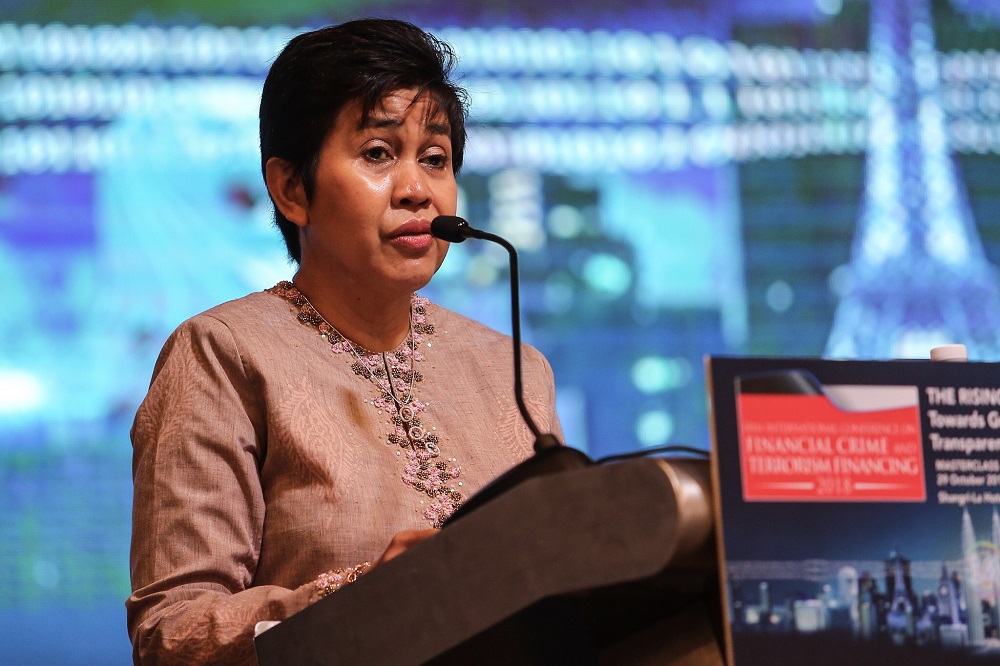KUALA LUMPUR, Oct 30 — Commercial banks in the country will have to alert the central bank if they receive minimum deposits of RM25,000 and onwards starting January 1 next year.
Bank Negara Malaysia (BNM) governor Datuk Nor Shamsiah Mohd Yunus said today that the move to halve the current deposits threshold is part of the central bank’s efforts to curb money laundering and a black economy.
Malaysia ranks 10th in the list of illicit money outflows and money laundering offences in the world, and it currently has among the highest mandatory cash deposit threshold, higher than the United States’ US$10,000 (RM41,000).
“Therefore, it is timely for us to look at ways to strengthen the controls to mitigate financial crime; namely the cash threshold reporting requirement,” Nor Shamsiah said in her opening speech of the International Conference on Financial Crime and Terrorism Financing 2018.
“When we compare Malaysia with other countries, our current threshold is too high and disconnected from the size of our economy, especially relative to our purchasing power.
“Hence, it needs to be updated. In this regard, we would like to announce that we will be lowering the daily cash threshold report to RM25,000 effective 1st January 2019.
Nor Shamsiah said the lowered threshold will bring Malaysia at par with other countries.
“We do not anticipate any impact in terms of economic activity but an increase in effectiveness in taming the black economy that is still heavily reliant on cash transactions,” she said.
Cash threshold reporting (CTR) refers to cash transactions exceeding RM50,000 (or any other amount advised) both in domestic or foreign currency, and bearer negotiable instruments such as travellers’ cheques, but excludes bank drafts, cheques, electronic transfers or fixed deposit rollovers or renewals, the BNM website stated.
These include transactions involving withdrawal of cash from accounts or exchange of bearer negotiable instruments for cash.
The requirements for CTRs are applicable to single or multiple cash transactions within the same amount specified in a day.
The new regulation is expected to raise compliance costs as the volume of vetted transactions will increase, although details about the new policy are scarce at the moment.
Nor Shamsiah said the move is necessary given commerce in Malaysia is still heavily cash-reliant. Hard cash circulation has increased by around 150 per cent over the past decade, the BNM governor said.
Despite the headway in keeping cash circulation stable, Nor Shamsiah said the persistency of cash among the public and small and medium-sized businesses remains high.
“This opens up the economy to risks as cash is still being used by criminals to launder illegal proceeds, as we have seen from some high-profile cases over the past year or so,” she said.
“Similarly, this is the preferred mode to finance terrorist activities, which will involve transacting in cash.”
Cash circulation stood around six to seven per cent of GDP for the past five years.



















